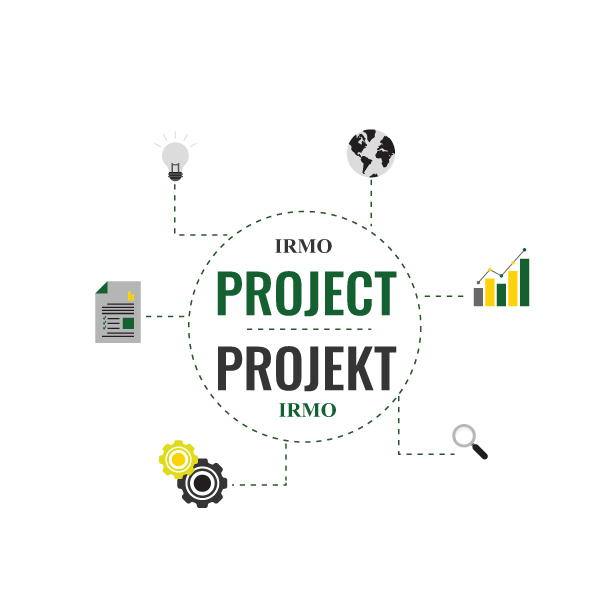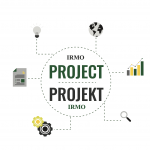Project duration: 2007
Team leader: Nada Švob-Đokić, PhD
Research Project Summary
During the last about twenty years Croatia has been exposed to sudden and theoretically intransparent processes of cultural transitions. Their structural characteristics and the new elements of national and regional cultural identification now illustrate the post-transitional character of Croatian culture: a growing openness to global communication processes; the important role of new technologies and media; development of creative industries; a flexible and more individualized choice of cultural values; acceptance of cultural pluralism and multiculturalism, etc. These elements of the transformed Croatian culture and new cultural identification need to be researched in the global and European cultural contexts in which Croatian culture is looking for its new place through processes of functional cultural integration.
Basic aims of this research include a definition of (own) cultural space which coincides and communicates with global and European trends; the affirmation of cultural identities as a key frame of reference of cultural integration, and discussion of cultural integration as an unavoidable process which may provide for a future (desirable) cultural development.
Research results include the presentation of knowledge on key elements of the European cultural space, on the character of cultural integration processes and conditions that determine the position of national and local cultures; on dynamics of cultural change it encourages, and on cultural policies and strategies which give meaning to the overall social impact of culture, to particular cultural activities and to cultural development. The results will be presented in published studies and books, and through the formulation of cultural policies and strategies on local and state levels. They will influence conditions determining cultural exchange, cultural cooperation and negotiations on the status of Croatian culture in the contemporary world. This enables the newly created knowledge to be permanently tested in practice, in cooperation with cultural creators and workers, their associations, cultural administrators, and in communication with the interested public.
The importance of this research is reflected in the need to theoretically organize cultural development that should be based on authentic cultural contributions and on the functional integration of symbolic values of the Croatian culture into global and European cultural spaces and cultural developments.
The initial hypothesis is that Croatian culture evolves towards contexts of the new European cultures by acquiring the post-transitional characteristics, which include: ever larger openness to global communication processes; increased role of new technologies and media; development of creative industries; a flexible and more individualized choice of cultural values; acceptance of cultural pluralism and multiculturalism, etc. This hypothesis:
- Covers new cultural identification, rejection of cultural values accepted until recently, and an effort to rationalize such rejection and evaluate the process of value changes;
- Indicates that Croatian culture is searching for a new space of cultural development that coincides and communicates with the global cultural trends, which is particularly visible in cultural consumption, cultural values and practices, but also in cultural production for global markets.
Integration into the contemporary European cultural context is primarily based in the concept of functional integration, which is wider and more complex than the formal legal integration. Functional integration encompasses gradual transition from homogenous national cultural identity to identity models that favor individual choices, interest in and tolerance of different cultures and different cultural values, as well as multiple value orientations and choices within the own culture.
Public cultural policies evolve within the concept of creative policies. In the context of overall social change, it is impossible to observe culture only as a sector. Cultural creativity and a system of cultural values are defined and conditioned by a number of extra-cultural activities and regulations. Cultural policy is linked to other public policies (education, media, scientific, etc.), which make together a complex of creative policies that define public (democratic) influences on the overall development of society, and on particular activities within society.
Croatian culture identifies, judges and absorbs gradually global cultural influences, which stimulates value and cultural transformation on national and local levels. Conceptual frameworks and approaches determining this process are not quite transparent: doest it reflect understanding of global spaces as centralized, dominating and universal value contexts (T. Friedman), or doest it reflect understanding of the global as a network of interactions among authentic and different cultural constellations (E. Knutsson)? Conceptual framework exercises a major influence and directs the redefinition of cultural identities: could we discuss, and how, cultural hybridization (N.G. Canclini), or re-affirmation of a new authenticity?
New technologies, and particularly Internet, change the context and character of Croatian culture. Digital technologies and networks change type of cultural creativity and thus enable fast spreading of new ideas and styles; they stimulate faster development of culture and creative industries, and thus change modes of cultural consumption. Decentralization of cultural development occurs. Intensity and volume of cultural communication is increased; media take over mediation among creators and users of cultural values.
Cultural identification evolves from representation of cultural identities to recognition of different cultural identities and to acceptance of intercultural communication. In the global setting, the presence of ‘other’ is unavoidable. In the Croatian reality this fact is reflected as a confrontation with multicultural character of the Croatian society (minority cultures; gender cultures, etc.), and as acceptance of intercultural communication. Within the concept of representation of cultural identities, the affirmation of Croatian cultural specificities will be discussed, as well as the perception of Croatian cultural identity within and outside of Croatia. Within the concept of recognition of different cultural identities, principles of tolerance, understanding, solidarity, stimulation of intercultural communication, etc., are affirmed.
Cultural exchange and cultural links are a relevant framework to discuss and evaluate Croatian identity values. Research of cultural exchange and cultural links is an important indicator of contributions of the Croatian culture to the European cultural context. Such contributions should be analyzed in the frameworks of theses on the periphery arts (Karaman), that reflect the borderline position of Croatian culture (West-East; North-South; Mediterranean and Central European contexts), as well as within the frameworks of other creative challenges that emerge from contacts with different cultural contexts, and from aspirations to define the own context. Exploration of this hypothesis stresses a more precise examination of the position of Croatian culture and its integration into the European cultural space.


